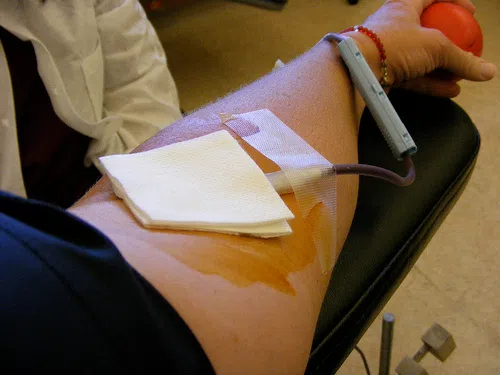
Blood shortage renews questions over gay-donor rules
Some gay men are questioning why they are still banned from donating blood while HIV infection rates in Saskatchewan are lower among gay men than other groups.
“I think a lot of people, especially myself, wish there was something we could do to help or contribute,” said Dan Shier, marketing manager for Queen City Pride. He says it’s frustrating to hear about a push for donations during a blood shortage when he can’t donate.
“That would be my initial thought, wanting to help but not being able to.”
Last year, Canadian Blood Services changed the policy from a lifetime ban on what they call the MSM category: men who have sex with men. The policy now lets gay men donate blood provided they have been celibate for five years. While Shier says this looks like a step in the right direction, it’s not very realistic.


